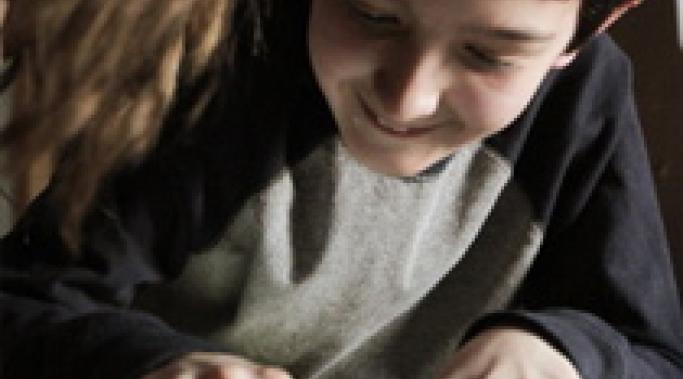Blogs
There are many ways to get help for combat posttraumatic stress disorder (PTSD) but one you might not think about is a combat PTSD mobile app. And while there are many apps that aim to help mental health issues, the app I would like to highlight is the PTSD Coach (which is free). The app is created by the United States Department of Veteran’s Affairs National Center for PTSD in partnership with the Department of Defense's National Center for Telehealth and Technology
This combat PTSD app has been downloaded over 100,000 times, so clearly I’m not the only one who really feels it can help. (And, I should say, while designed with combat PTSD in mind; this app is appropriate for anyone suffering from any form of PTSD.)
Using your brain and body in PTSD recovery is critical. It isn't one or the other but both that contain important elements of healing: messages, ideas, options and opportunities for success.
The following healing stories were shared with me as I interviewed one of our national treasures: Dr. Bernie Siegel. Don't know him? He's an American writer and retired pediatric surgeon, who writes on the relationship between the patient and the healing process. Known for his best-selling book, Love, Medicine and Miracles, Bernie is a unique presence in the trauma world because he's a doctor (a/ka/, a person trained to believe "the mind and body are completely separate") who believes that not only are the mind and body connected, you can use your mind to heal your body.
Following through on PTSD healing goals is as tricky as sticking to New Year resolutions: you muster up a lot of determination and make big promises and then, around about this time of January (or a few weeks into the plan) your momentum slows and things fall apart. Why is that and how can you make it past the flagging focus to follow through on your PTSD healing goals? One idea is to strengthen your goal plan at its foundation.
More often than not, when people see others yawning, they find themselves yawning as well. This phenomenon is known as social yawning and it involves a deeper set of emotions. Yawning in this scenario reflects a person’s empathy for another. Such instinctual display of empathy usually strengthens the social group and the relationship among individuals. However, recent research shows that contagious yawning is not always the case for people on the autism spectrum (ASD, Autism Spectrum Disorder).
Research offers many explanations for the deficiency to perceive emotions typical for the ASD population. The most dominant one is that autistic children tend to confuse the expressions being displayed and therefore find it difficult to interpret them successfully.
A new documentary, "Kidnapped for Christ", was recently released. Although I haven't seen anything other than the promo, the movie made my must-see list. The movie is about a dysfunctional Christian behavioral modification school and the teenagers who were sent there involuntarily.
It brought back memories. While my parents thankfully never sent me off to the Dominican Republic because of my psychiatric disorder, I feared that they would. Some kids, including a high school friend of mine, weren't that lucky. I was, however, abused in the name of God, just like these folks were, as a form of mental health treatment.
Yesterday I turned 36 years old. Yes, that’s right, I’m on the “wrong” side of being in my mid-30s. And while I realize that, in our culture, being in your 30s is nothing to be proud of (especially if you’re a woman), I am, in fact, proud.
And here’s why.
I’m proud because I’ve been living with a serious mental illness for (at least) 16 years – and I have survived. Many of our brothers and sisters with bipolar disorder have not been so lucky and we should all celebrate for those who can’t.
One of the major adjustments I've had to deal with in the last 6 years since I've started recovery from bulimia, has been to accept and love how my body looks and feels without abusing it the way I did for years. Because I suffered from bulimia and not anorexia, it was easier to hide at the time that I was suffering from an eating disorder, because I still looked 'normal' and maintained almost the same weight for a few years.
As adults with ADHD, we may have a tendency to fidget. Fidgeting isn't something that's often seen as adult-like behavior. I was told a few months ago that when one goes to a job interview you should never fidget and pretty much you should never fidget at work. See, I asked if it was okay to start fidgeting after you got the job, but the question wasn't received all that well and it was basically a "no." So, what the heck are we supposed to do to control mostly unconscious behaviors?
Over the past couple of weeks, I’ve realized something very important. We’ve been told this over and over and even though I’ve heard it and attempted spread the word, just recently have I begun to listen. Especially during rough times, it’s crucial to keep a positive head on your shoulders.
It’s important to be comfortable with who are and the skin you’re wearing.
Post-vacation depression (or, post-vacation blues, as it is sometimes called) has often plagued me. I was hoping that this time it would be different. I just got back from a vacation in the sun. And now, it is all I can do to keep those depression demons off my back.









